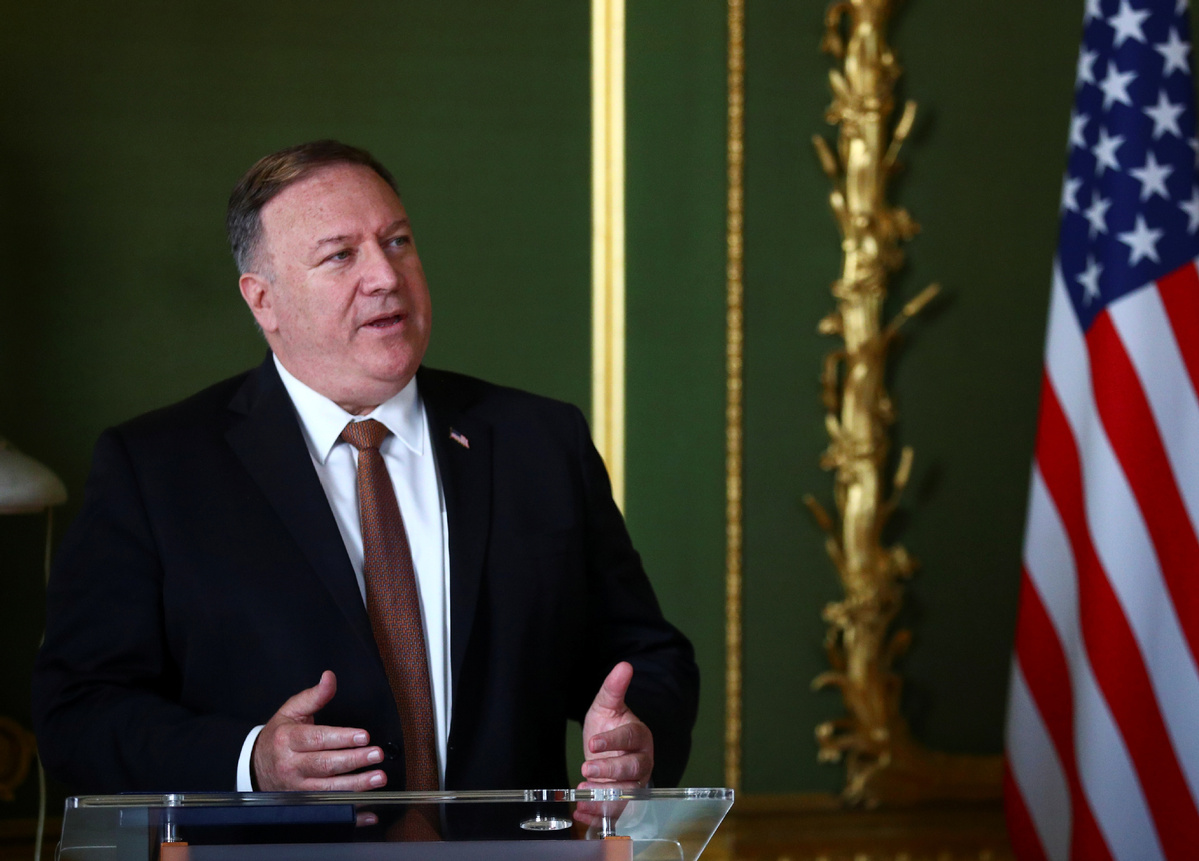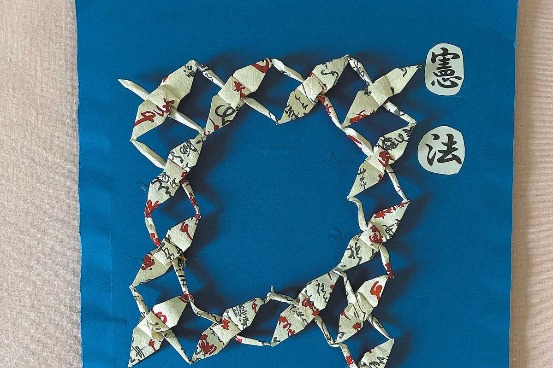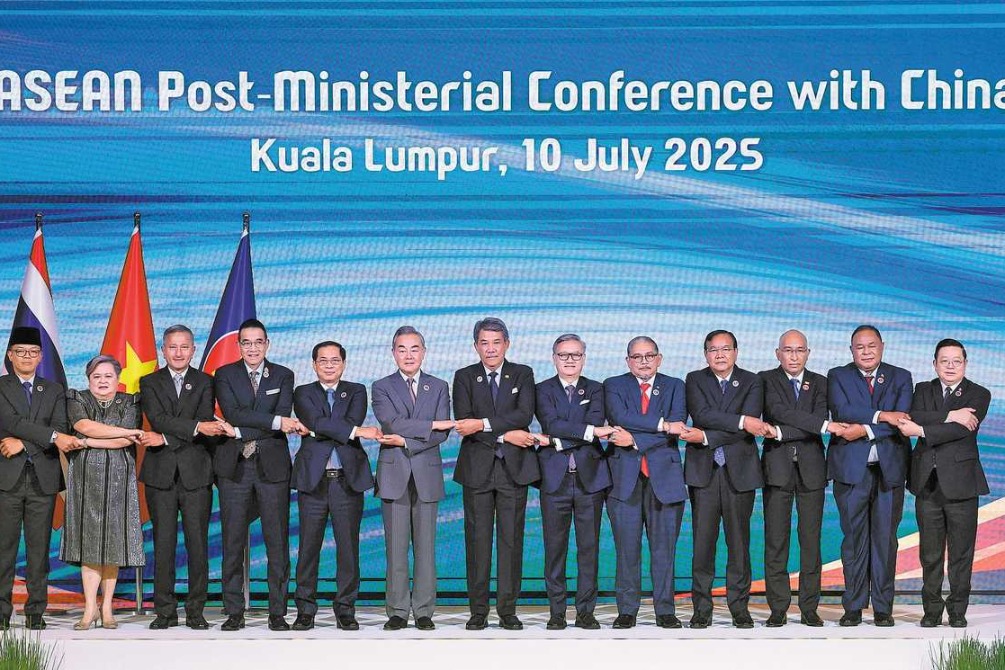Five Eyes alliance promotes double standards


The Five Eyes intelligence alliance is the world's oldest such grouping, dating to the 1940s. Comprising Australia, Canada, New Zealand, the United Kingdom and the United States, it provides a comprehensive espionage network, collecting and sharing all types of information, including signal, defense and human intelligence, and most recently, geospatial intelligence.
The US, under the current administration, has withdrawn from many of its global involvements. However, it has significantly enhanced its involvement in Five Eyes, for reasons that are now clear.
Driven by Secretary of State Mike Pompeo, US foreign policy is largely directed at challenging China, and Five Eyes is seen as a ready-made, English-speaking alliance that the US can mold into an anti-China coalition.
Originally a partnership of equals, Five Eyes is now dominated by the US, which uses its trade clout to get its way. Whereas the UK, which exits the European Union on Dec 31, is desperate for a generous free trade deal with the US by the end of this year, Australia has had one since 2005, and is keen to develop it further.
The United States-Mexico-Canada Agreement came into force on July 1, and Canada is now more determined than ever to cement its ties with the US.
The other Five Eyes members are beholden to the US, and when it says "jump", they reply, "how high?"
In May, when Pompeo asked them to sign up to a joint rebuke to China for its proposed National Security Law for Hong Kong, they quickly fell in line, the exception being New Zealand, which meekly apologized that it "couldn't agree in time", despite its "deep concern".
Once the law was enacted on June 30, there were no stragglers. After Pompeo had fired his opening salvos, promising sanctions on all and sundry, the other members tamely joined in, unveiling a raft of preplanned measures.
All this must have delighted Pompeo, whose crusade against China dates back many years. What is extraordinary is that, although the Five Eyes all have their own national security laws, they wish to prevent Hong Kong from having its own.
As it lacked basic protections, Hong Kong was left largely defenseless in the face of those who, over the past year, tried their best to destroy "one country, two systems".
Whereas none of the Five Eyes would ever tolerate parts of their own countries being denied essential national security laws to defend themselves, they hypocritically expected China to countenance this in Hong Kong, even when terrorist-type outrages were being committed by people who wanted Hong Kong to secede from China.
Massive damage was caused to public facilities, infrastructure and businesses by armed mobs, with, for example, 91 percent of subway stations being vandalized, something the Five Eyes would never allow on their own soil.
The US has numerous national security laws, many draconian and intrusive, and a battery of agencies to enforce them, including the Department of Homeland Security, the Federal Bureau of Investigation, the National Security Agency and the Secret Service.
Even though the USA Patriot Act of 2001 violates the US Constitution's Fourth Amendment right to judicial protections against illegal searches, and the Cybersecurity Act of 2015 rides roughshod over privacy protections, Washington's Five Eyes partners turn a blind eye, treating it as an internal matter for the US.
After the United Nations Human Rights Council issued a scathing report on the US human rights record in 2015, and made 348 recommendations for improvement, covering such areas as police brutality, racial profiling and the treatment of migrant families, the US response-shortly after Pompeo's confirmation in 2018-was not to put things right, but to announce its withdrawal from the council.
Had the report been taken seriously, many of the problems associated with the killing of George Floyd in May might have been avoided, although apparently none of the Five Eyes dared mention this to Pompeo.
If the Five Eyes really wanted to do something positive about human rights, they could, for example, raise with Pompeo the situation of the prisoners held for years without trial at the US military prison in Guantanamo Bay, Cuba, given that this would be abhorrent in their own countries.
In January, there were still 40 detainees there, all Muslim men, many of whom have undergone torture. However, the US' Five Eyes partners know that if they brought this up with Pompeo, it would upset the puppet master, and it is safer by far for them simply to gang up on little Hong Kong.
In Australia, meanwhile, the government has just introduced the Australian Security Intelligence Organisation Amendment Bill, which would give sweeping powers to the ASIO, including the power to compulsorily question people not only for terrorism-related threats, but also for espionage, foreign interference and politically motivated violence.
The bill also would give authorities the power to force digital platforms and service providers abroad to surrender personal and business data belonging to Australians.
At a parliamentary inquiry on July 10, David Neal, the co-chair of the Law Council's National Criminal Law Committee, described some of these powers as being broader than those in Hong Kong's national security law.
Mike Burgess, the director-general of the ASIO, justified the bill by saying Australia is facing unprecedented levels of espionage and foreign interference, a terrorist threat that remains at "probable", and an "escalating threat of violence from extremists". His words exactly describe the threats that Hong Kong also faces.
But although it is fine, in the Five Eyes book, for Australia to take tough defensive action to protect its citizens, it is not all right for China to do likewise, which is rank hypocrisy.
It's hard to believe that any self-respecting nation would wish to throw in its lot with an alliance that so brazenly promotes double standards. It appears judgment and morality have been subordinated to greed and self-interest, which suits Pompeo down to the ground. However, the Five Eyes would do well to remember that all that glitters is not gold.
The author is a senior counsel, law professor and criminal justice analyst, and was previously the director of public prosecutions of the Hong Kong Special Administrative Region.
































